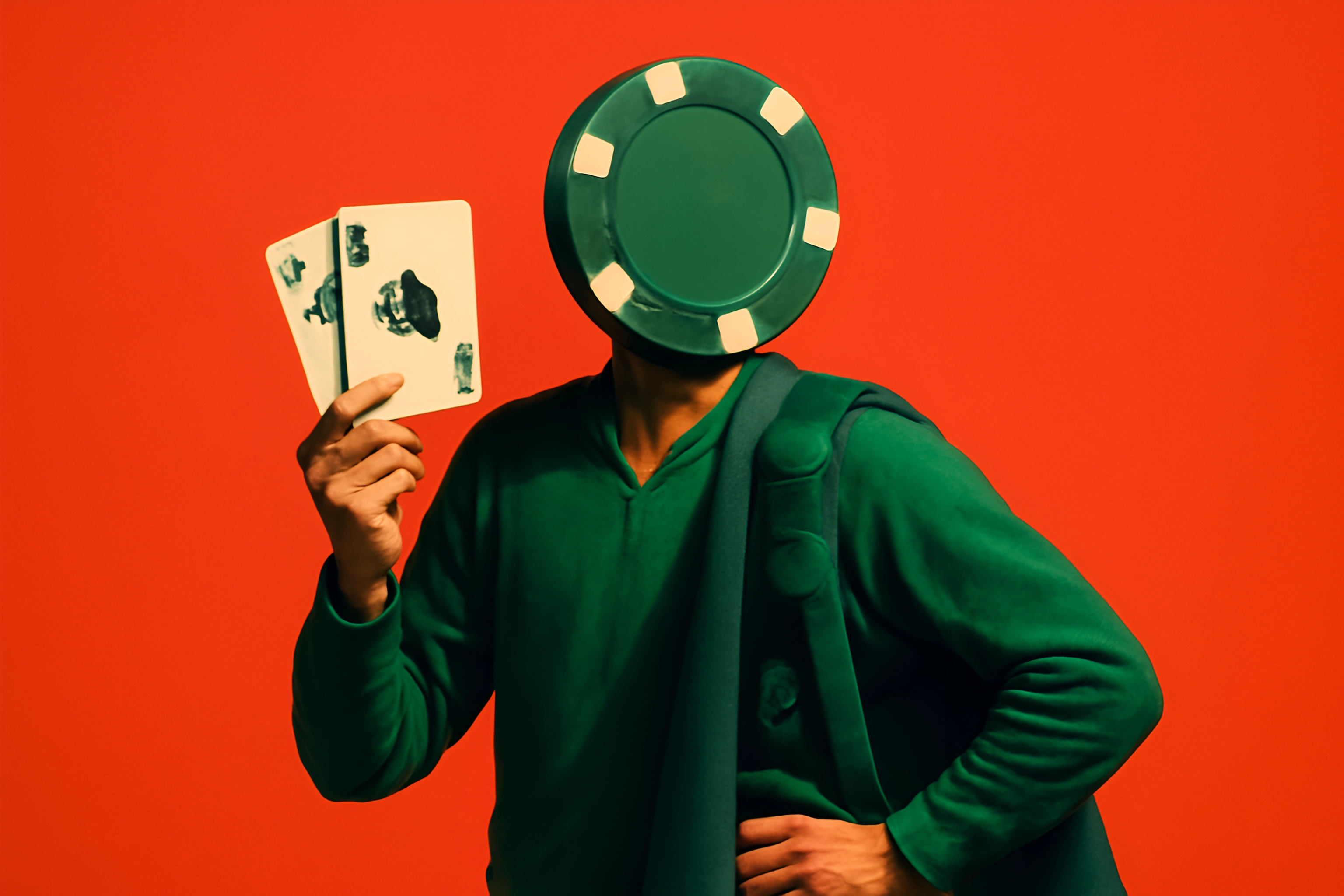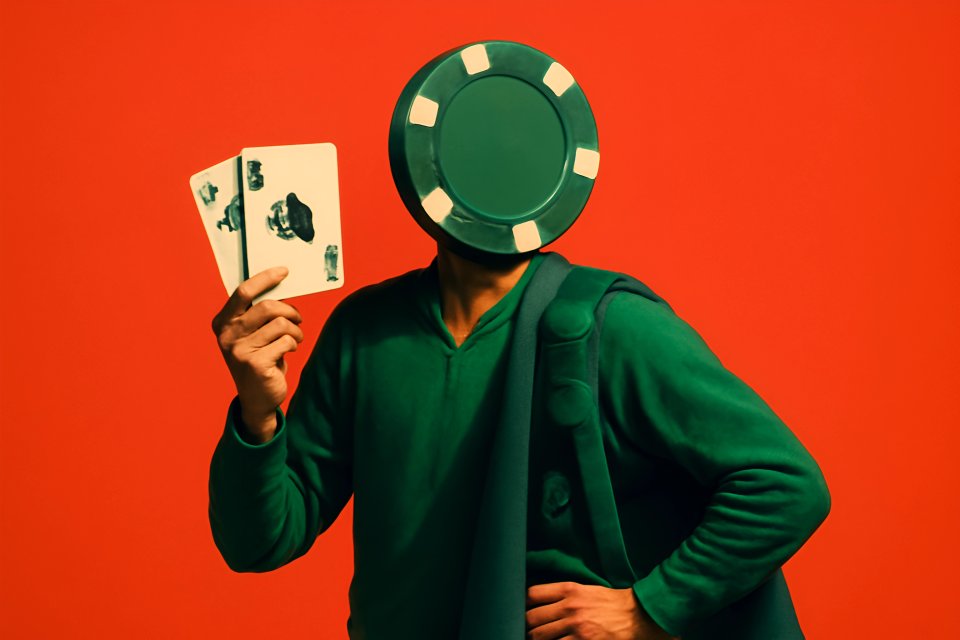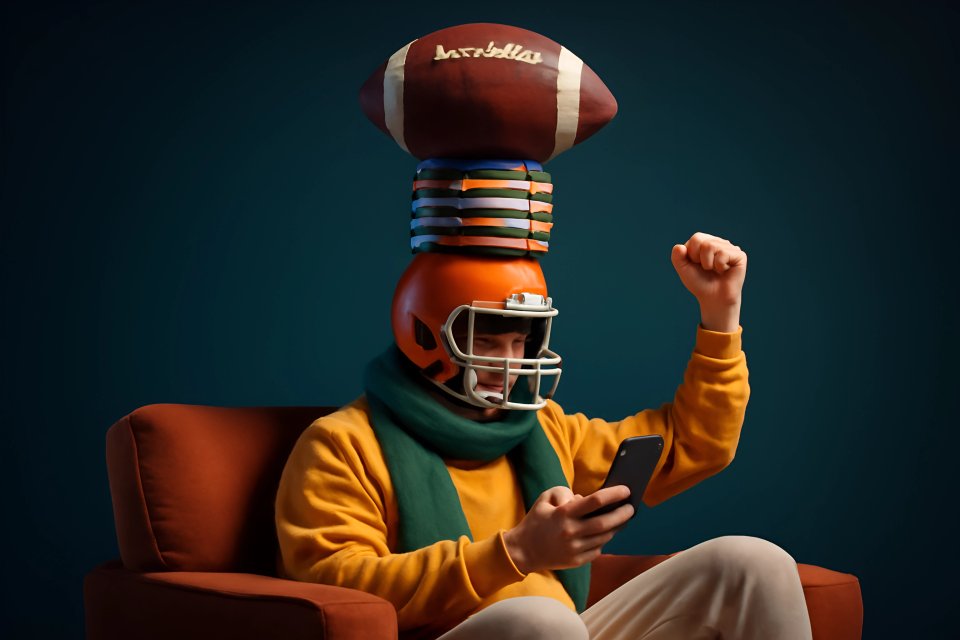
The casino floor. A symphony of sounds, a kaleidoscope of lights, and the ever-present thrill of the unknown. But what if you could shift the odds, even slightly, in your favor? Blackjack, that timeless dance between player and dealer, isn't just a game of blind luck; it's a battle of wits where strategy reigns supreme. The allure isn't just the potential winnings, but the primal satisfaction of outsmarting the system, of challenging the casino itself.
Yet, lurking in the shadows of every felt table is the "house edge." This is the casino's built-in mathematical advantage, ensuring that, over time, the house usually wins. It’s a formidable opponent, but is it unbeatable? Not entirely. This guide is your arsenal, equipping you with proven blackjack strategies and sharp casino blackjack tactics designed to slash that edge, to give you a fighting chance, and sometimes, even a taste of dominance.
We'll journey from the foundational rules to the potent force of basic strategy, touch upon the clandestine world of card counting, and ground it all in sensible bankroll management. Here at ApostadorBrasil, our mission is to arm you, the discerning Brazilian player, with the knowledge to play smarter, to transform your casino experience from a hopeful gamble into a calculated engagement. Are you ready to turn the tables?
Understanding the Blackjack Battlefield
The Objective
Forget the myth that you need to hit 21 every time. Your true goal in blackjack is deceptively simple: beat the dealer's hand without exceeding a total of 21. You can win with a hand of 15 if the dealer busts, or with a 20 if the dealer shows a 19. This fundamental understanding shifts your focus from chasing a magic number to making strategic decisions against your direct opponent.
Basic Rules & Card Values
Let's quickly recap the essentials for those new to the felt. Numbered cards (2-10) are worth their face value. Face cards (Jack, Queen, King) are each worth 10. Aces are the chameleons of the deck, valued at either 1 or 11, whichever benefits your hand more. After receiving your initial two cards, you have several options: Hit (take another card), Stand (keep your current hand), Double Down (double your bet and receive one more card), or Split (if you have two cards of the same value, you can separate them into two new hands, placing an additional bet equal to your original). Some games also offer Surrender, allowing you to fold your hand and forfeit half your bet.
What is the House Edge in Blackjack?
So, what exactly is this "house edge" we're determined to fight? It's the casino's average profit from a player's bet, expressed as a percentage. In blackjack, before any strategy is applied, this edge can hover between 0.5% to 2%, as Casino.org highlights in their analysis of the blackjack house edge. Several factors contribute to this, but a primary one is that the player must act first. If you bust (go over 21), you lose immediately, even if the dealer subsequently busts as well. This procedural advantage is a cornerstone of the casino's profit.
Can You Really Beat the House Edge?
This is the million-dollar question, isn't it? For the average player, consistently beating the house edge to guarantee profit is incredibly difficult and often requires advanced techniques like card counting. However, the fantastic news is that by understanding the game and applying solid strategy, you can dramatically reduce the house edge. The primary goal for most players should be to lower that edge as much as possible, transforming blackjack into one of the fairest games in the casino, where your skill truly matters.
The Cornerstone: Mastering Basic Blackjack Strategy
What is Basic Strategy?
Imagine having a cheat sheet, devised by mathematicians, that tells you the optimal play for every single hand combination against any dealer upcard. That's precisely what basic strategy is. It's a set of rules, often presented in a chart, that dictates whether you should Hit, Stand, Double Down, Split, or Surrender to maximize your expected return over the long run. Its power is undeniable; employing perfect basic strategy can slash the house edge significantly, often to less than 1%, with some sources like Wizard of Odds noting it can be as low as 0.39% in a six-deck game under favorable rules. This isn't about gut feelings; it's about cold, hard probability.
How to Use a Basic Strategy Chart
A basic strategy chart might look intimidating at first, but it's quite intuitive. Typically, your hand (or total) is listed down one axis (rows), and the dealer's visible upcard is listed across the other axis (columns). You find the intersection of your hand and the dealer's upcard, and the chart tells you the mathematically correct move. For example, if you have a total of 16 and the dealer is showing a 7, the chart will instruct you to Hit. You can find many blackjack basic strategy engines online, like the one on BlackjackInfo, to practice with.
Key Decisions Explained
Let's delve into some common scenarios and how basic strategy guides your actions, turning uncertainty into confident decision-making.
- Hitting vs. Standing: When should you risk taking another card, and when is it wiser to hold your ground? If you have a hard 12 (a hand without an Ace, or with an Ace counted as 1) and the dealer shows a 4, 5, or 6 (weak cards for the dealer), basic strategy typically advises you to
Stand. The dealer has a higher chance of busting with these upcards. However, if you have that same hard 12 and the dealer shows a 2, 3, or 7 through Ace, you shouldHit. - Doubling Down: This is your chance to press your advantage! Prime opportunities to
Double Downoften arise when you have a total of 10 or 11, as the deck is rich in 10-value cards that can give you a strong hand. For instance, with a total of 11 against any dealer upcard except an Ace, doubling down is almost always the correct play. - Splitting Pairs: Got two of a kind? Sometimes, splitting them into two separate hands is a powerful move. Basic strategy universally advises splitting Aces and 8s. Splitting Aces gives you two chances to hit a blackjack or a strong 21. Splitting 8s turns a problematic hand of 16 (one of the worst starting totals) into two hands starting with 8, offering much better potential.
- Surrender (if offered): Don't view surrender as giving up; see it as a strategic retreat. If you have a hard 16 against a dealer's 9, 10, or Ace, or a hard 15 against a dealer's 10, surrendering (if the casino rules allow it) is often the best play, as your chances of winning the hand are very low. You save half your bet for a better opportunity.
- Insurance/Even Money: When the dealer shows an Ace, you'll be offered "insurance." This is a side bet that the dealer has blackjack. While it might sound tempting, basic strategy players should almost always decline insurance. Wizard of Odds points out that the insurance bet carries a hefty house edge, around 5.9% in a single-deck game, making it a poor proposition for the player.
The Impact
Embracing basic strategy is non-negotiable if you're serious about beating the house edge, or at least giving it a serious run for its money. It won't guarantee you'll win every hand – that's impossible. But it ensures you're making the mathematically soundest decision every single time, minimizing your losses and maximizing your opportunities over the long haul. It’s the bedrock upon which all other advanced casino blackjack tactics are built.
Advanced Tactics & Game Selection
Beyond Basic: Understanding Deviations
While basic strategy is the optimal play in most situations, advanced players, particularly card counters, sometimes deviate from it. These deviations are based on the changing composition of the remaining cards in the deck. However, for the vast majority of players, mastering basic strategy perfectly should be the absolute priority before even considering such complexities. Trying to apply deviations without a flawless understanding of basic strategy is like trying to run before you can walk – a recipe for stumbles.
The Importance of Game Rules & Table Selection
This is where you can gain a significant, yet often overlooked, advantage. The specific rules of the blackjack game you choose can dramatically affect the house edge. Pay attention to these critical factors:
- Blackjack Payouts: This is HUGE. Always seek out tables that pay 3:2 for a blackjack. Many casinos now offer tables that pay only 6:5 for a blackjack. This seemingly small difference is disastrous for your odds. As Casino.org explains, a 6:5 payout increases the house edge by about 1.39% compared to a 3:2 payout. Avoid 6:5 tables like the plague; they are designed to take your money faster.
| Payout Rule | Impact on House Edge (vs. 3:2) | Player Expectation |
|---|---|---|
| 3:2 on Blackjack | Baseline (Favorable) | Higher |
| 6:5 on Blackjack | Increases by ~1.39% | Significantly Lower |
- Dealer Stands on Soft 17 (S17) vs. Hits Soft 17 (H17): A "soft 17" is a hand totaling 17 that includes an Ace counted as 11 (e.g., Ace-6). If the rules state the dealer
Stands on Soft 17(S17), it's better for the player. If the dealerHits Soft 17(H17), it increases the house edge by about 0.22%, according to data often cited by resources like Wizard of Odds. Always prefer S17 tables. - Number of Decks: Generally, the fewer decks used, the better it is for the player, assuming all other rules are equal. A single-deck game can have a house edge as low as 0.15% under optimal rules, while an eight-deck game might be closer to 0.57%, as detailed by Casino.org's guide on deck numbers. This is because card removal has a more significant impact on probabilities in games with fewer decks.
- Other Rules: Look for other player-friendly rules such as
Double After Split(DAS), which allows you to double down after splitting a pair. The ability toRe-Split Aces(RSA) is also beneficial. The availability ofLate Surrendercan also slightly reduce the house edge.
Finding Favorable Games
How do you find these golden tables? Be observant. In land-based casinos, take a walk around the pit. Look for signs on the tables detailing the rules, especially the blackjack payout. Don't be afraid to ask the dealer if you're unsure. Online casinos usually list the game rules clearly within the game interface or help section. Doing a little homework before you sit down to play can save you a lot of money and frustration in the long run.
Introduction to Card Counting (Demystified)
Disclaimer
It's crucial to understand a few realities about card counting blackjack. Firstly, it is not illegal. You are simply using your brain and observation skills. However, casinos are private establishments and reserve the right to refuse service to anyone, for almost any reason. If they suspect you are counting cards effectively, they can ask you to stop playing blackjack or even leave the premises, as noted by sources like BetUS on the legality of card counting. Secondly, card counting is not easy. It requires intense concentration, significant practice, and a cool head under pressure.
What is Card Counting?
At its core, card counting is a system to keep track of the ratio of high-value cards (Tens, Jacks, Queens, Kings, Aces) to low-value cards (2s through 6s) that have already been dealt. The goal is to determine if the remaining undealt cards in the deck or shoe are richer in high cards or low cards. This information gives the counter an edge.
Why Does it Work?
A deck or shoe that is rich in high cards (especially Aces and 10-value cards) favors the player. Why? Because it increases the player's chances of getting a blackjack (which usually pays 3:2), makes doubling down more profitable, and increases the dealer's chances of busting when they have a stiff hand (like a 12 through 16). Conversely, a deck rich in low cards favors the dealer.
A Simple System Example (e.g., Hi-Lo)
One of the most well-known and relatively simple card counting systems is the Hi-Lo count. Here’s how it generally works, as detailed by resources like Wikipedia's entry on card counting and Wizard of Odds' Hi-Lo guide:
- Assigning Values: Cards 2, 3, 4, 5, and 6 are assigned a value of
+1(because their removal benefits the player). Cards 7, 8, and 9 are neutral, assigned a value of0. Cards 10, Jack, Queen, King, and Ace are assigned a value of-1(because their removal hurts the player). - Keeping a "Running Count": As each card is dealt, the counter mentally adds or subtracts its value from a running total. For example, if the first five cards dealt are a 5 (+1), a King (-1), a 7 (0), an Ace (-1), and a 3 (+1), the running count would be: +1 -1 +0 -1 +1 = 0.
- Calculating the "True Count": The running count gives you an idea of the deck's composition, but it's more accurate when adjusted for the number of decks remaining to be played. This is called the
True Count. You get it by dividing theRunning Countby the approximate number of decks left in the shoe. For example, if your running count is +6 and there are roughly 3 decks remaining, your true count is +2.
How Card Counters Adjust Their Play
The True Count is the key. When the true count is positive and high, it signals that the remaining cards are rich in high cards, favoring the player. This is when a card counter will:
- Bet More: They increase their bet size significantly because the odds are in their favor.
- Alter Basic Strategy: They might make slight deviations from basic strategy. For example, with a high positive true count, they might stand on a 16 against a dealer's 10 (where basic strategy says to hit) or take insurance (which basic strategy normally advises against).
Is Card Counting for You?
Card counting can give a skilled player a small edge, typically around 0.5% to 1.5% over the house, as Wikipedia notes. However, it demands immense discipline, practice, a substantial bankroll to weather variance, and the ability to remain discreet. It's not a get-rich-quick scheme and certainly not for the casual player. For most, perfecting basic strategy and choosing games with good rules will provide the best and most accessible path to improving their blackjack results.
Essential Bankroll Management & Betting Strategies
Why Bankroll Management is Crucial
Think of your bankroll as your ammunition in the battle against the house edge. Without it, you can't play. Proper bankroll management protects you from going broke during inevitable losing streaks (variance is a part of any gambling), allows you to play within your means without financial stress, and keeps you disciplined. It’s the foundation of long-term survival and potential profitability.
Setting a Budget
Before you even think about approaching a blackjack table, decide exactly how much money you are willing to risk for that session or trip. This is your dedicated blackjack bankroll. Crucially, this must be money you can afford to lose without impacting your essential finances. Once you've set this budget, stick to it religiously. No exceptions.
Bet Sizing
How much should you bet per hand?
- Flat Betting: This involves betting the same amount on every hand. It's a simple, conservative approach, good for beginners practicing basic strategy.
- Avoiding Dangerous Systems: Steer clear of progressive betting systems like the Martingale (doubling your bet after every loss). While they might seem appealing in theory, they are incredibly risky and can lead to catastrophic losses quickly, especially with table limits, as Investopedia explains the flaws of the Martingale system.
- Relating Bet Size to Your Bankroll: A common guideline for basic strategy players is to bet between 1% to 5% of your session bankroll per hand, as suggested by resources like Casino.org's bankroll strategies guide. For example, if your session bankroll is R$200, your bets might be between R$2 and R$10. This helps you withstand swings.
- Bet Spreading (for Card Counters): Card counters vary their bets based on the true count, betting minimally when the count is negative or neutral, and significantly more when the count is highly positive. This requires a much larger overall bankroll to absorb the variance.
Setting Win/Loss Limits
This is about discipline. Decide beforehand how much you're willing to lose in a session (your loss limit) and, just as importantly, a target for winnings (your win limit). If you hit your loss limit, walk away. If you reach your win goal, consider pocketing a portion of your winnings and playing with the rest, or walking away to enjoy your success. Knowing when to quit, win or lose, is a hallmark of a smart player.
Responsible Gambling Reminder
Remember, blackjack should be a form of entertainment. Always play responsibly. Never chase losses, and never gamble with money you can't afford to lose. For more on smart and responsible play, explore resources like the comprehensive betting guides available at ApostadorBrasil, which offer insights applicable across various gaming arenas.
Putting It All Together: Practice, Mindset, and Etiquette
The Power of Practice
Knowledge is one thing; execution is another. You wouldn't expect to play a musical instrument beautifully without practice, and blackjack is no different.
- Use Free Online Blackjack Games: Many online casinos and gaming sites offer free-play blackjack. These are invaluable tools for practicing basic strategy without risking real money. You can use online trainers like those mentioned by Bojoko for blackjack simulation or 888casino's blackjack trainer to hone your skills.
- Practice with Basic Strategy Charts: Keep a chart handy while you play practice games. The goal is to internalize the correct plays so they become second nature. Repetition is key.
Maintaining Discipline & Emotional Control
The casino environment is designed to be exciting, sometimes overwhelmingly so. It's easy to get caught up in the moment, especially during a winning or losing streak.
- Avoiding Tilt: "Tilt" is a term, often from poker, describing a state of mental or emotional frustration in which a player adopts a less-than-optimal strategy, usually resulting in over-aggression or reckless play, as Wikipedia defines tilt. If you feel yourself getting frustrated or making emotional decisions, step away from the table. Take a break, clear your head.
- Sticking to Your Strategy: Discipline is paramount. Whether it's adhering strictly to basic strategy or your predetermined bankroll limits, consistency is what separates successful players from those who leave empty-handed.
Table Etiquette (Briefly)
Especially in live, land-based casinos, knowing basic table etiquette makes the game more enjoyable for everyone.
- Hand Signals: Use clear hand signals to indicate your decisions (e.g., tapping the table for
Hit, waving your hand horizontally forStand). - Handling Chips: Don't touch your chips once the bets are placed and the hand is in play. Stack your bets neatly.
- Interacting with Dealer/Players: Be polite to the dealer and other players. Avoid giving unsolicited advice or criticizing others' play. A little courtesy goes a long way, and BetMGM offers a good guide on blackjack etiquette.
Continuous Learning
Blackjack, while seemingly simple, has layers of depth. The best players are always learning, always refining their understanding. Stay curious, read articles, and perhaps even explore more advanced concepts once you've mastered the fundamentals. The journey to becoming a truly skilled blackjack player is ongoing.
Conclusion
So, can you truly master blackjack and consistently beat the house edge? While a guaranteed win is never on the table, blackjack stands out in the casino world. It offers you, the player, one of the best opportunities to leverage skill and strategy to dramatically improve your odds. You now understand that this isn't just about luck; it's about making informed, intelligent choices.
The key takeaways are crystal clear. Basic strategy is your non-negotiable foundation – learn it, live it, breathe it. Understanding the nuances of game rules and table selection can give you an immediate advantage before a single card is dealt. While card counting is a powerful tool for the dedicated few, it's an advanced skill requiring immense commitment. And underpinning everything is sensible bankroll management – the guardian of your playing capital and your longevity in the game.
You are now equipped with the foundational casino blackjack tactics to approach the blackjack table not as a passive hopeful, but as a strategic contender. The power to shift the odds, to play smarter, and to enhance your enjoyment of this classic game is now in your hands.
Ready to test your newfound skills and strategic insights? Explore platforms offering great blackjack experiences by checking out trusted casino insights, similar to what you'd find in our detailed betting guides at ApostadorBrasil. Continue your journey to becoming a casino expert with more strategic guides from ApostadorBrasil. Always remember to play responsibly and enjoy the thrill of the game.



